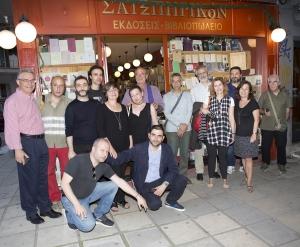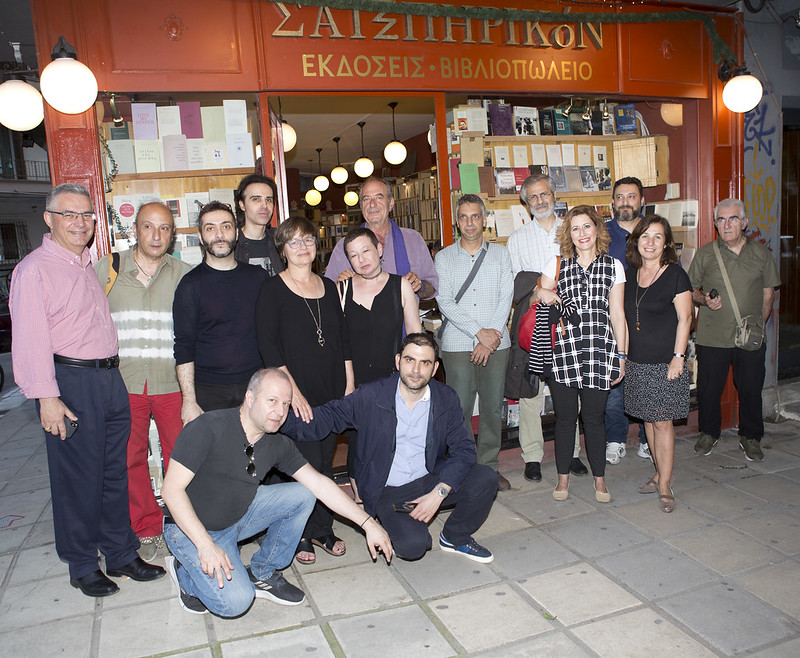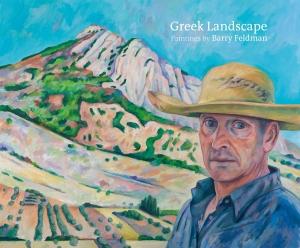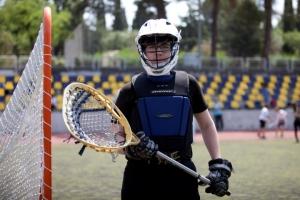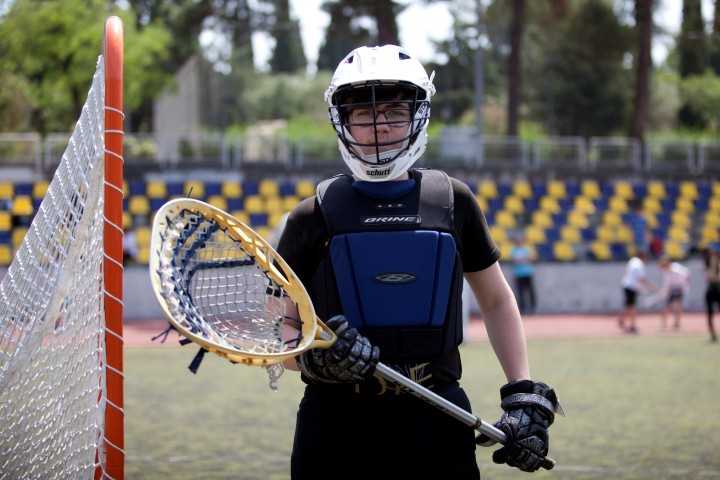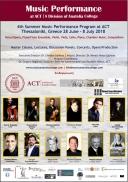A round table on Greek - Turkish - US relations
Friday, May 18, 17:00 -20:00
Piraeus Bank Conference Center (Katouni 14, Thessaloniki)
Join the event
Greece and Turkey are neighbors, foes, and allies, joined geographically by a unique and occasionally disputed border over land and sea, allied bilaterally the one and the other with the United States, and multilaterally through NATO, while Turkey is also a candidate for membership in the European Union.
In the past weeks, reports in English international media outlets have claimed that Greece and Turkey are closer to war than at any time since 1996, and conversely, more closely aligned, and more peaceful, than ever before.
Tensions remain high, alarmingly so to outside observers, in part owing to the unprecedented uncertainty emanating from the Administration of President Donald J. Trump, the US having long played the role of guarantor of stability in the Aegean.
Add Russian interests in the region, the impact of the ongoing military and refugee crisis in Syria, and challenges to democracy and the rule of law on both sides of the Atlantic (with elections certain in Turkey and in the US, and possible in Greece, in 2018), and you have a volatile mix.
What should one expect going forward? Is the current climate reminiscent in any way of previous periods in local history, or are we called upon to recast this history in a new and potentially unsettling light? Will tensions escalate? Who, if not the US (and NATO), can act as an honest broker in regional affairs?
In a unique collaborative venture, the Dukakis Center and the Center for International and European Studies will convene a distinguished group of scholars, practitioners, and diplomats for a public debate on these and other questions and issues.
Working language: English
Participants
Pavlos Apostolides graduated from the Athens Law School, University of Athens, and served in the Hellenic Diplomatic Service from 1965 to 2004.. Among other posts, he was Ambassador of Greece to Cyprus and Permanent Representative of Greece to the European Union in Brussels. He has also served as General Secretary of the Ministry of Foreign Affairs, and Director of the National Intelligence Agency. Ambassador Apostolides was a Director of Alpha Bank A.E. between 2004 and 2011 and has been a Non-Executive Independent Director of Alpha Bank A.E. since June 26, 2012.
Mustafa Aydın is Professor of International Relations at Kadir Has University and, since 2004, the President of the International Relations Council of Turkey. He held the position of Rector of Kadir Has University between February 2010 and March 2018. He is also Governing Board Member of the OECD International Management of Higher Education Programme and a Member of the European Academy of Sciences and Arts. Professor Aydın previously worked at Ankara University (1994-2005) and TOBB University of Economics and Technology (2005-2009); and was guest researcher/lecturer at Michigan (1998), Harvard (2002, Fulbright fellow), and Athens (2003, Onassis Fellow) Universities, as well as the Richardson Institute for Peace Studies (1999, Unesco Fellow) and the EU Institute for Security Studies (2003). He is a member of the Global Relations Forum (GIF), International Studies Association (ISA), Turkish Atlantic Council, Turkish Political Sciences Association, International Network on Regional Security, and the European Society for Central Asian Studies (ESCAS). He was a member of the Economy and Foreign Policy Study Group of the President of Turkey (2003-2009); Co-Coordinator of the International Commission on Black Sea (2010); and Director of International Policy Research Institute (2005-2011).
Maria Bozoudi is an international affairs executive with expertise in European integration, the Balkans, diplomacy and globalization. She holds post-graduate degrees from the University of Macedonia and George Washington University., and is currently conducting post-doc research on the history and practices of economic diplomacy. She has worked for more than 15 years on post-conflict Balkan reconstruction, with stints at the Business Advisory Council for Southeastern Europe and Eurasia, the Stability Pact for Southeast Europe, and the Business Information Clearing Center. She is currently Adjunct Professor of International Relations at ACT.
Mitat Celikpala is Professor of International Relations and Dean of the Graduate School of Social Sciences at Kadir Has University, where he teaches undergraduate and post-graduate courses. Professor Çelikpala’s subject expertise covers the history, society and security of Eurasia and the former Soviet territories, diaspora studies, the Black Sea region, Turkey-Russia relations, energy security, critical infrastructure security, and the complexities of terrorism. Having concluded his BA at Middle East Technical University, Dr. Çelikpala then received a Master’s degree at Hacettepe University and a PhD at Bilkent University. He is also a Senior Associate Member of Oxford University’s St. Anthony’s College. Dr. Çelikpala has served as an academic advisor to NATO’s Centre of Excellence Defense against Terrorism (DATR), the Turkish Armed Forces’ Strategic Research Centre, and the Ministry of Foreign Affairs’ Strategic Research Center.
Serhat Guvenc received his BA and MA degrees from Marmara University and his PhD in Political Science and International Relations from Boğaziçi University, Istanbul. He is currently a Professor of International Relations and Chair of the Department of International Relations at Kadir Has University. Previously he held faculty positions at Istanbul Bilgi University, the University of Chicago, Koç University, and Boğaziçi University. Dr. Güvenç’s research interests include Turkish foreign and security policy and Turkish naval policy and history. He is the author of: The Ottomans’ Quest for Dreadnoughts, Istanbul, 2009, Turkey in the Mediterranean during the Interwar Era (Indiana University Turkish Studies, 2010) (with Dilek Barlas) and 60 Years in NATO: Turkey’s Contributions to Transatlantic Security, (Istanbul, 2013). His articles have appeared in Middle Eastern Studies, International Journal of Naval History, Uluslararası İlişkiler, Exotierika Themata(Greek), Journal of Strategic Studies, GMF Mediterranean Papers, Southeast European and Black Sea Studies, International Journal, Turkish Studies and Turkish Policy Quarterly. His most recent article, co-authored with Mesut Uyar, “One Battle, Two Accounts: The Turkish Brigade at Kunu-ri in November 1950” was published in The Journal of Military History. Professor Güvenç is a board member of the Foundation of Lausanne Treaty Emigrants and advisory board member of Koç University’s Maritime Forum (KUDENFOR).
Kostas Ifantis is an Associate Professor of International Relations, Department of International Relations, Kadir Has University and at Panteion University of Athens. He worked as a Lecturer in International and European Politics at the Universities of Bradford and Portsmouth, UK (1991-1995). He was a USIA Visiting Fellow at the Center for Political studies, University of Michigan, Ann Arbor (1998) a Fulbright Visiting Scholar at the John F. Kennedy School of Government, Harvard University (2002), an IAA Senior Research Fellow at the LSE (2009), and a Visiting Professor at the University of Seul (Summer 2016). Between 2005 and 2008 he served as Director for Research at the Policy Planning Center of the Greek Ministry of Foreign Affairs. His papers have appeared in edited books and in periodicals such as Democratization, Turkish Studies, Southeast European and Black Sea Studies, Perceptions, International Journal, etc. His books include Greece in a Changing Europe (co-ed., Manchester University Press, 1996); NATO in the New European Order (Macmillan, 1996); Theory and Reform in the European Union (Manchester University Press, 2002); NATO and the New Security Paradigm (Frank Cass 2002); Turkish-Greek Relations: The Security Dilemma in the Aegean (co-ed., Routledge, 2004); International Security Today (co-ed., SAM, 2006); Multilateralism and Security Institutions in an Era of Globalization (co-ed., Routledge, 2009); International Political Theory: and The charm of realist discourse (in Greek, 2012); Is Europe Afraid of Europe? (ed., Wilfrid Martens Center, 2014).
Alexander Karagiannis is a former Foreign Service officer who was senior advisor to the director general of the State Department. He has previously served as DCM in Sofia, and as an office director in the Bureau of European and Eurasian Affairs (twice). He has expertise in national security as both practitioner and analyst, specializing in NATO, European, Russian and Mediterranean affairs. Mr. Karagiannis has been visiting associate professor at The George Washington University, and is the co-author of "Building a Foreign Service for 2025 and Beyond."
John Koenig joined the US Foreign Service in 1984 and held a number of senior positions in U.S. diplomatic missions in Europe. A graduate of Foreign Relations from Johns Hopkins University, School of Advanced International Studies, he has been posted in East Berlin. Nicosia, Athens, and, as Principal Officer, at the American Consulate General Thessaloniki 2000-03. Between 2003 and 2006, Koenig was Deputy Permanent Representative and Deputy Chief of Mission at the U.S. Mission to NATO in Brussels. From 2012 till his retirement in 2015 he was US Ambassador to Cyprus.
Sotiris Serbos is Assistant Professor of International Politics at Democritus University of Thrace and Research Fellow in European Foreign Policy at Jean Monnet European Centre of Excellence of the University of Athens, in Greece. He has served as special adviser in the Hellenic Ministries of Foreign Affairs, Defense, Economy. He holdws degrees from the University of Macedonia (BA), the London School of Economics & Political Science (MSc) and the National & Kapodistrian University of Athens (Ph.D.). In 2014-2015, he has been awarded a Fulbright Fellowship in the field of transatlantic relations at The Johns Hopkins School of Advanced International Studies and the University of Pittsburgh’s EU Center of Excellence. His research interests include international organizations, European integration and foreign policy analysis, with emphasis on Southast Europe, Greek and Turkish foreign policy. His policy experience includes memberships at Gerson Lehrman Group’s Policy & Economics Council and Capvision International.
Dimitrios Triantaphyllou is the Director of the Center for International and European Studies at Kadir Has University since September 2010, where he is also an Associate Professor of International Relations. He holds a BA in Political Science and History from the University of California, Berkeley and an MA and PhD in International Relations from the Fletcher School of Law and Diplomacy at Tufts University. He was previously Director General of the International Centre for Black Sea Studies (ICBSS) and Assistant Professor of International Relations at the University of the Aegean, Rhodes (2006-2010). He was also Special Advisor at the Ministry for Foreign Affairs of the Hellenic Republic (2004-2006); Senior Research Fellow at the Hellenic Observatory of the European Institute at the LSE (2003-2004); Senior Research Fellow at the Institute for Security Studies of the European Union, Paris (2001-2003); Research Fellow at the Institute for Security Studies of the Western European Union, Paris (1999-2001); Deputy Director of the Hellenic Foundation for European and Foreign Policy (ELIAMEP), Athens (1996-99); and Foreign Policy Advisor to a member of the European Parliament (1995). He has written and edited a number of books and articles pertaining to European security, developments in the Black Sea region and South-Eastern Europe, and Greek foreign policy. He is also Associate Editor of Southeast European and Black Sea Studies (SSCI-indexed), a member of the Greek-Turkish Forum, and a co-convener of the Commission on the Black Sea.
David Wisner holds a Ph.D. in Modern History from the University of Rochester. He has written on the French Revolution, neo-idealist epistemology, and neo-classical art in various peer reviewed journals. He has also published one monograph, in the series Studies on Voltaire and the Eighteenth Century (Oxford). Since coming to Greece in the mid-1990s he has been particularly active in such issues as civic education, public policy, and US involvement in Southeast Europe, having participated in events and projects organized by the World Bank, the Bertelsmann Foundation, the Stability Pact, the German Marshall Fund, the US Embassy in Athens and the US Consulate General in Thessaloniki, among others. He appears regularly to discuss US and international politics on Greek radio and television, and writes occasional commentary for a Greek newspaper. In his capacity as Director of the Dukakis Center Dr. Wisner has also organized innumerable lectures, round tables, and workshops on national, regional, and international public policy issues. At ACT he conducts advanced seminars in US Policy in Southeast Europe, contemporary diplomacy, and political theory. He also teaches a prototype freshman pro-seminar in citizenship education.
Download the program
More











